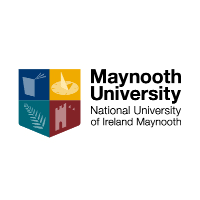Quantitative Finance: Your Gateway to Global Financial Markets
Embark on a transformative academic journey in Quantitative Finance, a dynamic field that merges advanced mathematical and statistical methods with financial theory. This course is meticulously designed for ambitious Indian students aspiring to carve out a successful career in the global financial landscape. Gain the specialized knowledge and practical skills demanded by top-tier financial institutions, investment banks, hedge funds, and fintech companies worldwide.
Our comprehensive curriculum provides a rigorous foundation in the quantitative techniques used to analyze financial markets, manage risk, and develop sophisticated trading strategies. You will delve into the intricacies of financial modeling, derivative pricing, algorithmic trading, and data analysis, preparing you for a diverse range of high-impact roles.
Why Study Quantitative Finance Abroad?
Studying Quantitative Finance abroad offers unparalleled advantages, especially for students from India:
- Global Perspective: Immerse yourself in international financial hubs, gaining firsthand exposure to diverse market practices and regulatory frameworks.
- World-Class Faculty: Learn from leading academics and industry experts who bring cutting-edge research and real-world experience into the classroom.
- State-of-the-Art Resources: Access advanced financial software, trading simulations, and extensive databases that replicate professional environments.
- Networking Opportunities: Build invaluable connections with peers, alumni, and professionals from around the globe, opening doors to international career opportunities.
- Enhanced Employability: Graduates with international qualifications in Quantitative Finance are highly sought after by global employers for their specialized skills and cross-cultural understanding.
Course Structure and Modules
The Quantitative Finance program is typically structured over one to two years, depending on the institution and degree level (Master's or Ph.D.). The curriculum is intensive and designed to provide a deep understanding of both theoretical concepts and practical applications. Key modules often include:
Core Modules:
- Financial Econometrics: Statistical methods for financial data analysis, time series models, and forecasting.
- Stochastic Calculus for Finance: Mathematical tools for modeling asset prices and derivatives under uncertainty.
- Numerical Methods in Finance: Techniques for solving complex financial problems, including Monte Carlo simulations and finite difference methods.
- Derivative Pricing and Hedging: Valuation of options, futures, swaps, and other financial derivatives.
- Risk Management: Identification, measurement, and mitigation of financial risks (market, credit, operational).
- Financial Modeling: Building and implementing quantitative models for various financial applications.
Elective Modules (May vary by institution):
- Algorithmic Trading Strategies
- Machine Learning in Finance
- Fixed Income Securities
- Credit Risk Modeling
- Behavioral Finance
- Computational Finance
- Portfolio Optimization
- FinTech and Blockchain Applications
Many programs also include a capstone project or a dissertation, allowing students to apply their knowledge to a real-world financial problem or conduct in-depth research.
Career Opportunities
A degree in Quantitative Finance opens up a plethora of exciting and lucrative career paths across the financial industry. Graduates are equipped for roles that require strong analytical skills, mathematical prowess, and a deep understanding of financial markets. Some common career roles include:
| Career Role | Description | Key Skills Utilized |
|---|---|---|
| Quant Analyst/Researcher | Developing quantitative models for pricing, trading, and risk management. | Stochastic Calculus, Programming (Python/R/C++), Statistics |
| Risk Manager | Assessing and managing various financial risks for institutions. | Risk Modeling, Regulatory Compliance, Data Analysis |
| Portfolio Manager | Constructing and optimizing investment portfolios for clients or funds. | Portfolio Theory, Econometrics, Market Analysis |
| Algorithmic Trader | Designing and implementing automated trading strategies. | Programming, Market Microstructure, High-Frequency Data |
| Data Scientist (Finance) | Analyzing large financial datasets to extract insights and build predictive models. | Machine Learning, Big Data Technologies, Statistical Modeling |
| Financial Engineer | Designing and developing new financial products and solutions. | Derivative Pricing, Numerical Methods, Product Innovation |
Graduates find employment in leading organizations such as Goldman Sachs, J.P. Morgan, Morgan Stanley, BlackRock, Citadel, Two Sigma, along with various fintech startups and regulatory bodies.
Admission Requirements for Indian Students
Admission to top Quantitative Finance programs abroad is highly competitive. While specific requirements vary by university, prospective Indian students should generally prepare for the following:
- Academic Background: A strong undergraduate degree (B.Tech, B.Sc, B.Com, B.A. in Economics) with a significant quantitative component (Mathematics, Statistics, Computer Science, Engineering, Physics, Economics). A minimum GPA or percentage equivalent to a first-class honors is usually required.
- Standardized Tests:
- GRE: A high score on the Graduate Record Examinations (especially in the Quantitative section) is often mandatory.
- English Proficiency: IELTS (typically 6.5-7.5 overall) or TOEFL (typically 90-100 iBT) scores are required for non-native English speakers.
- Letters of Recommendation (LORs): Two to three strong academic or professional recommendations highlighting your quantitative abilities and potential.
- Statement of Purpose (SOP): A compelling essay outlining your academic background, career aspirations, and why you are interested in Quantitative Finance and the specific program.
- Resume/CV: Detailing your academic achievements, relevant work experience, internships, and any research projects.
- Prerequisite Knowledge: Demonstrated proficiency in linear algebra, calculus (multivariable), probability, statistics, and often an introduction to programming (e.g., Python, C++, R).
Preparing for Your Application
To maximize your chances of admission, consider the following:
- Strengthen Your Math and Programming Skills: Take advanced courses, complete online certifications, or engage in personal projects to build a robust quantitative foundation.
- Gain Relevant Experience: Internships in financial institutions, data analytics roles, or research positions can significantly boost your application.
- Start Early: The application process can be lengthy. Begin preparing for standardized tests and drafting your essays well in advance.
- Research Programs Thoroughly: Identify programs that align with your academic interests and career goals. Consider faculty research, course offerings, and career placement statistics.
Embarking on a Quantitative Finance degree abroad is an investment in your future, equipping you with the tools to navigate and shape the complex world of global finance. Prepare to challenge yourself, innovate, and emerge as a leader in this exciting field.



